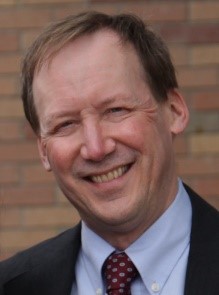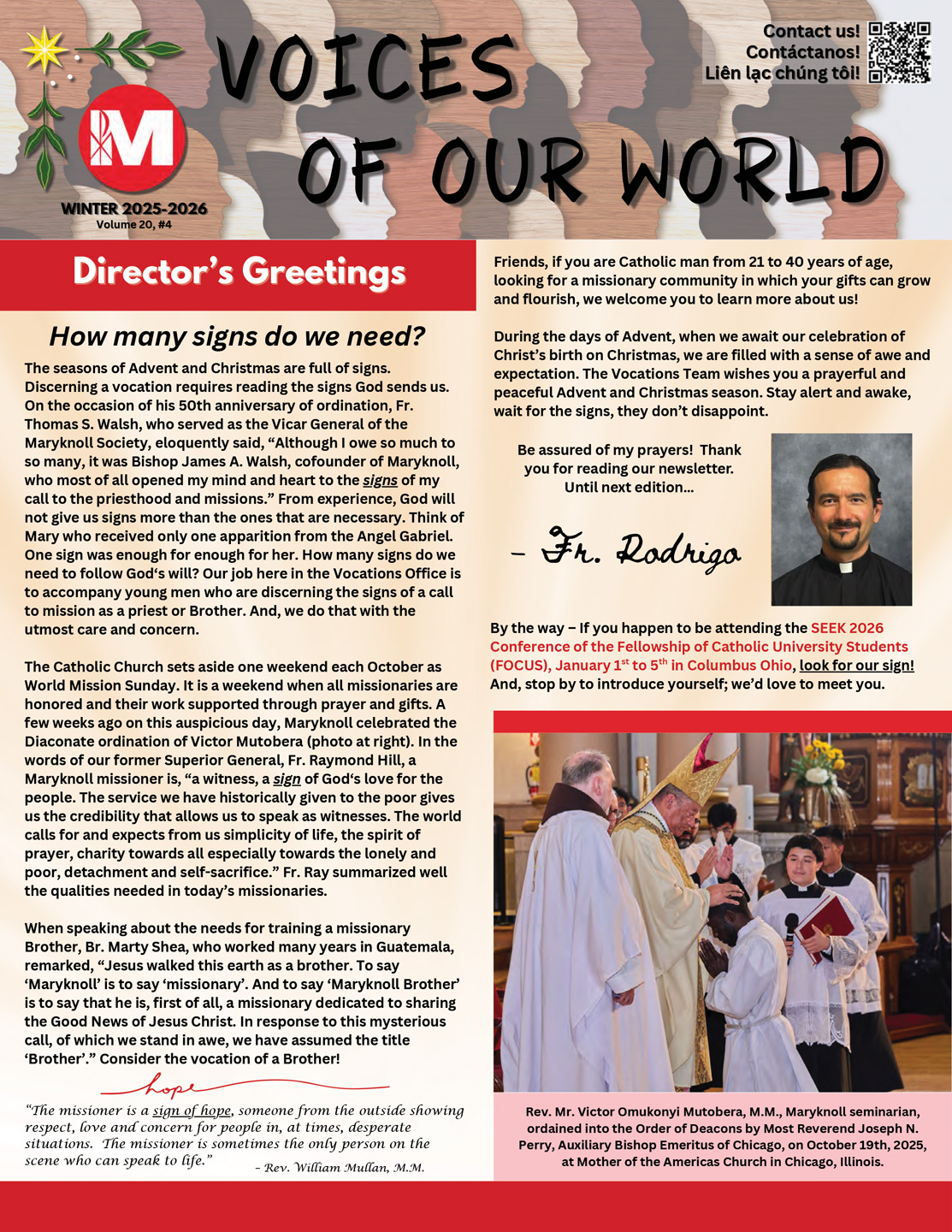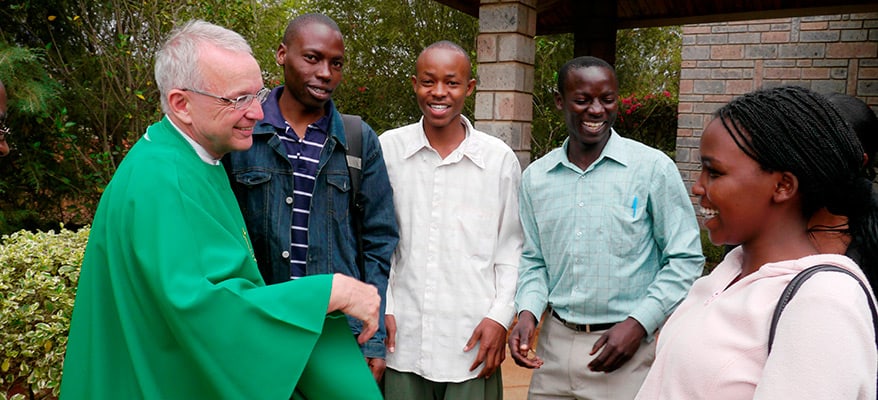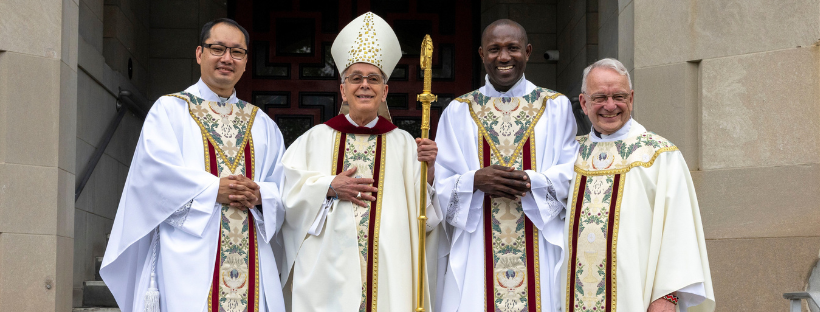
Spiritual author, Fr. Richard Rohr OFM once remarked, “Transformed people transform people.” It’s the chemical equation of a spiritual life – when one person encounters another through love, a transforming reaction takes place changing both lives, making each more brilliantly transparent to God’s love. This is the call of the “apostolic life”; it’s the summons of Jesus, “Come, follow me”, through encounter upon encounter with the peoples of our world, especially those who most resemble Christ – the poor, the homeless, the refugee, the despised, the condemned.
Often “apostolic life” is contrasted with “contemplative life”, especially when distinguishing communities of consecrated life in discerning a vocation.
Contemplative communities are commonly characterized by silence, simplicity and prayerful intentionality in work and devotion to God and to one another. In this way of life, the example of Jesus at prayer, draws us away from the world so as to embrace it more deeply and completely in God’s love.
Apostolic communities, on the other hand, are typically characterized by their action or ministry in the world, generally outside of monasteries. Members may teach, serve the homeless or poor, minister in healthcare settings or prisons, accompany migrants and refugees, care for Creation, or advance social justice causes among many other ministries. In this way of life, the teaching and healing ministries of Jesus, and the example of the apostles being sent by Him into the world to do the same, is foremost.
And yet as Jesus demonstrated, both “contemplative” and “apostolic” dimensions are essential for a meaningful Christian life. And both are practiced even among the most “contemplative” or “apostolic” of communities.
Though drawn to prayer and contemplation in our Maryknoll charism, we nonetheless identify most publicly with our apostolic calling and way of life. To paraphrase French writer, Émile Zola, if you ask us what we came to do in this world, we will answer: we are here to “live out loud”. Mission is, for us, prayer lived “out loud” in its subversive actions against the anxieties, animosities and complacencies that fray our bonds with God and one another.
Like other apostolic communities, Maryknollers journey to the margins of societies around the world. It’s there that God calls us to walk with the poor and broken, to bind wounded bodies and souls, and to call into question those social structures that perpetuate such suffering. In doing so, we encounter Christ time and again, often in very surprising ways. And, we are transformed.
Bishop James Edward Walsh, MM, one of Maryknoll’s first missionaries and our second Superior General, wrote movingly of one such encounter with a poor Chinese laborer.
“I saw him in the rice field”, Walsh recalled. “He stopped working as I approached and leaned on his hoe. The sweat of a hot day under the South China sun glistened on his brow.” As Walsh looked closer at the young man, he saw however something more – something that was always there that, but for a moment and Walsh’s prayerful openness to it, could have been forever lost to him. It wasn’t. Instead, a feeling of profound love welled up within, transforming Walsh and empowering him to exclaim his vocation as a missioner anew:
“’I choose you,’ sang in my heart as I looked at my awkward farmer boy, perfect picture of the underprivileged soul. ‘I choose you, and with you the countless million of God’s children like you… souls impoverished and unendowed, I choose you, and dedicate myself to you. I ask no other privilege but to devote the energies of my soul to such as you. For in this sudden revelation shines an incarnation of my life’s ideal. You are my father and mother my sister and my brother; you hold the center of my dreams.’
Jesus sent His apostles out into the world with nothing more than a walking stick (ref: Mark 6:8) so as to realize, for themselves, the truth of God’s dream for humanity – we are all family. A walking stick is meaningful though only if you take time to listen to God and the family you walk among – and if you’re open to wonder.
Touched by wonder in his own apostolic walk among the poor of China, Walsh implored: “Shine on, farmer boy, symbol to me of the thousand million like you who drew the Son of God from heaven to smooth and bless your weary anxieties and your puzzled brows. Come to me often in your barefooted squalor and look at me from out those hopeless and bewildered eyes. Do not let me forget that vision, but stay by me and preside over my dreams. Teach me that souls are people. And remind me everlastingly that they are magnificent people like you.”




